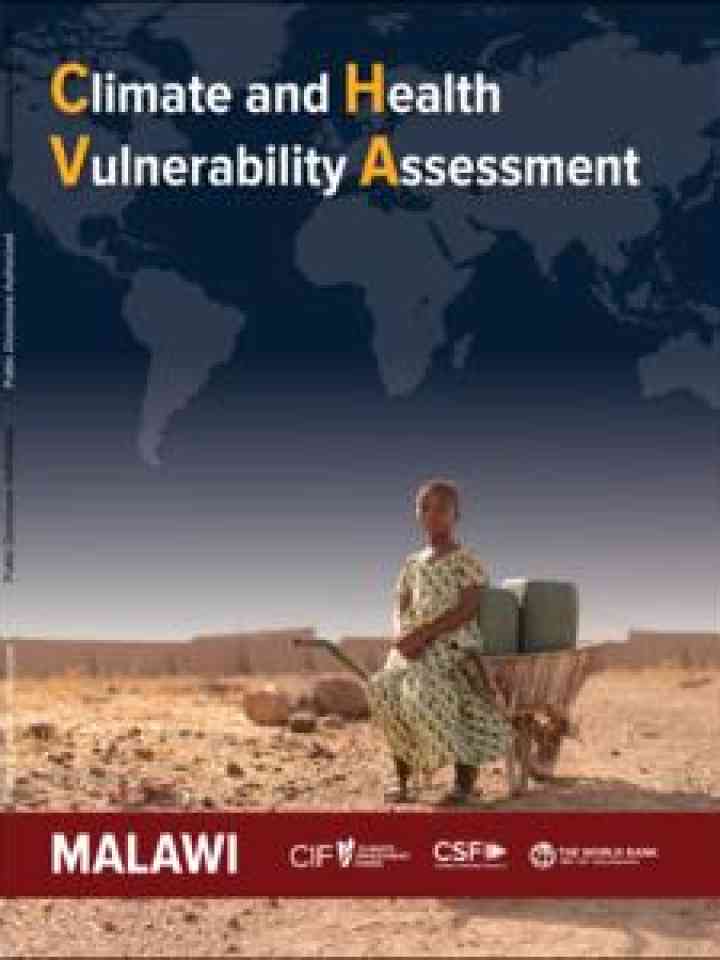Malawi - Climate and health vulnerability assessment
The objective of the Climate and Health Vulnerability Assessment (CHVA) is to assist decision-makers in Malawi with planning effective adaptation measures to address climate-related health risks. The country is affected by these climate hazards due to its geographical position; a strong dependency on rainfed agriculture, which is susceptible to regular climatic shocks; ongoing population growth; chronic and widespread malnutrition; as well as the high prevalence rates of HIV/AIDS.
Recommendations to reduce climate-related health risks in Malawi could include the following activities:
- Enhance the coordination mechanisms for climate action and articulate climate action in subnational plans. The progress on climate change commitments and objectives in development plans should be monitored and should address the rural-urban disparities in climate-health risks. Specific strategic planning should also account for subnational differences.
- Articulate climate-health actions in subnational plans.
- Create and promote health workforce retention packages, including risk reduction and emergency protocols, to ensure that there are sufficient skilled health workers for the areas at the highest risk of climate-related hazards.
- Scale up the formal training that was developed by Malawi's Health and Climate Change Core Team (HCCT) on climate and health and incorporate it into the medical and paramedical as well as the refresher courses for continued learning and on-the-job training opportunities.
Explore further
